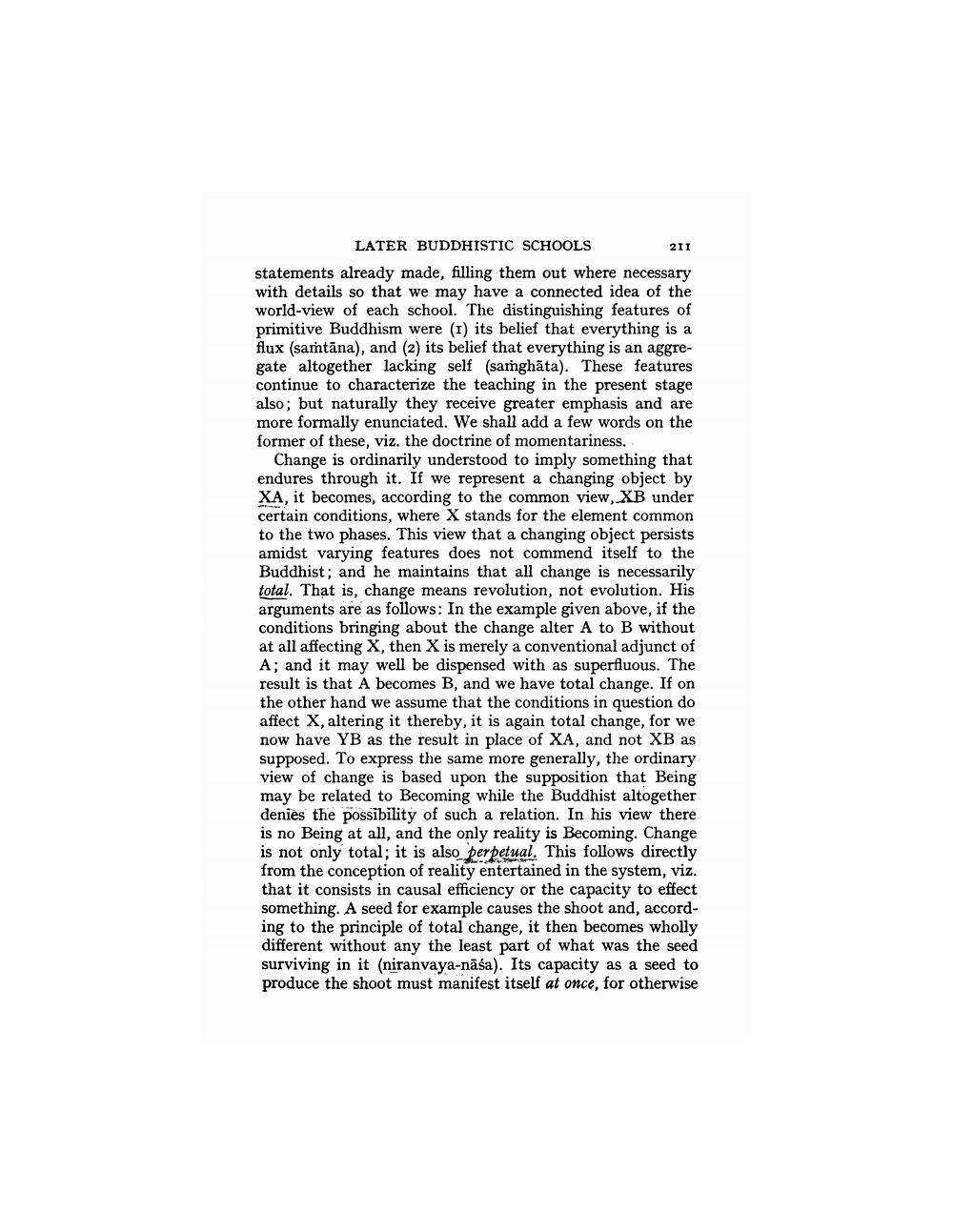________________
LATER BUDDHISTIC SCHOOLS
211 statements already made, filling them out where necessary with details so that we may have a connected idea of the world-view of each school. The distinguishing features of primitive Buddhism were (1) its belief that everything is a flux (samtāna), and (2) its belief that everything is an aggregate altogether lacking self (sarghāta). These features continue to characterize the teaching in the present stage also; but naturally they receive greater emphasis and are more formally enunciated. We shall add a few words on the former of these, viz. the doctrine of momentariness.
Change is ordinarily understood to imply something that endures through it. If we represent a changing object by XA, it becomes, according to the common view, XB under certain conditions, where X stands for the element common to the two phases. This view that a changing object persists amidst varying features does not commend itself to the Buddhist; and he maintains that all change is necessarily total. That is, change means revolution, not evolution. His arguments are as follows: In the example given above, if the conditions bringing about the change alter A to B without at all affecting X, then X is merely a conventional adjunct of A; and it may well be dispensed with as superfluous. The result is that A becomes B, and we have total change. If on the other hand we assume that the conditions in question do affect X, altering it thereby, it is again total change, for we now have YB as the result in place of XA, and not XB as supposed. To express the same more generally, the ordinary view of change is based upon the supposition that Being may be related to Becoming while the Buddhist altogether denies the possibility of such a relation. In his view there is no Being at all, and the only reality is Becoming. Change is not only total; it is also perpetual. This follows directly from the conception of reality entertained in the system, viz. that it consists in causal efficiency or the capacity to effect something. A seed for example causes the shoot and, according to the principle of total change, it then becomes wholly different without any the least part of what was the seed surviving in it (niranvaya-nāśa). Its capacity as a seed to produce the shoot must manifest itself at once, for otherwise




